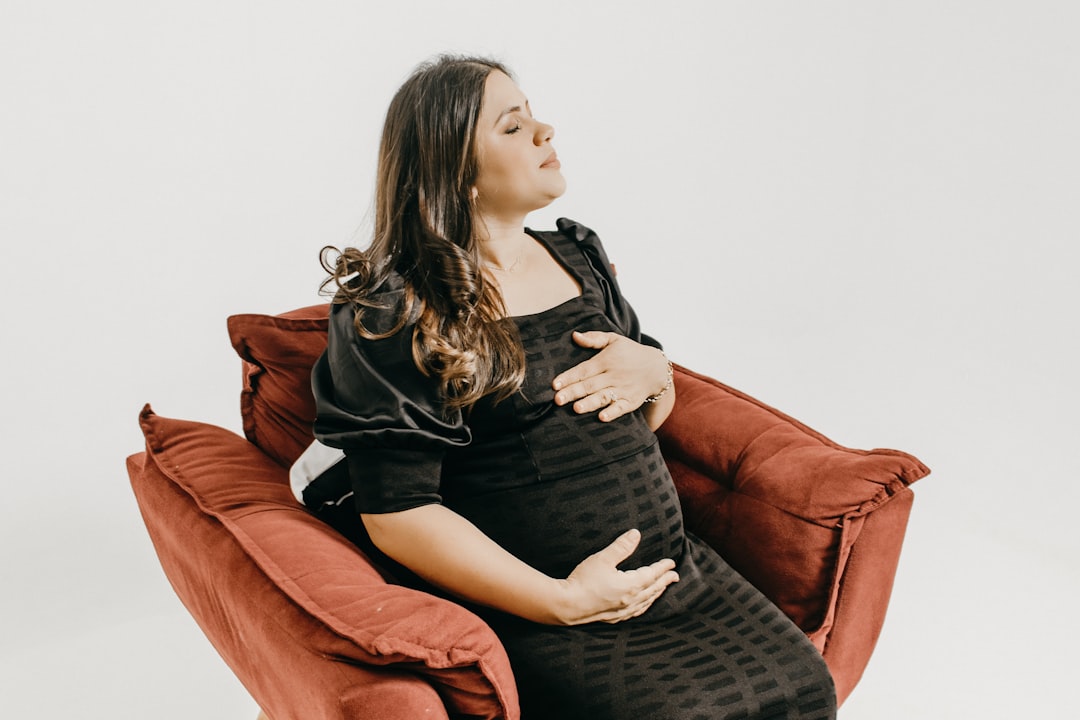Category: Mental Health
The role of sleep in postpartum healing: why rest matters for new moms
The birth of a baby brings overwhelming joy, but also unprecedented challenges—especially when it comes to sleep. While everyone jokes about new parents being tired, few discuss how crucial sleep is for a mother’s physical recovery and emotional wellbeing. Nearly 71% of women report poor sleep quality in the first month after giving birth, making it a universal yet often overlooked aspect of postpartum healing.
The Fourth Trimester and Mental Health: Building Your Postpartum Toolkit
The first weeks and months after giving birth can feel like navigating uncharted waters. While everyone focuses on your newborn, you’re experiencing profound physical and emotional changes that often go unacknowledged. This period, often called the “fourth trimester,” deserves as much attention as pregnancy itself—especially when it comes to your mental health.
Pregnancy and anxiety: Calming strategies for a peaceful mind
Have you been feeling a wave of worries wash over you since discovering you’re pregnant? You’re not alone. Up to 70% of pregnant women report experiencing symptoms of stress and anxiety during pregnancy, with anxiety levels peaking in the first trimester, affecting nearly 24% of expectant mothers.
Postpartum boundaries: How to protect your energy as a new mom
Becoming a mother is transformative, beautiful, and—let’s be honest—completely exhausting. While everyone focuses on the baby’s needs, your physical recovery and emotional wellbeing often take a backseat. Research indicates it takes roughly a full year for your body to reach a new equilibrium after pregnancy and childbirth, yet 40% of U.S. mothers return to work within just 6 weeks postpartum.
Postpartum mental health: How to recognize when it’s more than the baby blues
You’ve welcomed your baby into the world, but instead of feeling purely joyful, you’re experiencing a rollercoaster of emotions. Tearfulness, anxiety, irritability—these feelings can be confusing and frightening when you expected motherhood to bring only happiness. If this sounds familiar, you’re not alone. Nearly 25% of women experience postpartum depression up to one year after childbirth, according to [research](https://home.beginning.com/blog/post-pregnancy/early-postpartum-support-first-six-weeks-after-birth-postpartum-emotional-needs/).
Postpartum body changes no one talks about
After giving birth, your body embarks on a remarkable journey of recovery and adaptation. While some postpartum changes are commonly discussed, many physical and emotional transformations remain unspoken, leaving new mothers feeling unprepared and isolated in their experiences.
Managing stress in the second trimester: Why it matters for you and baby
The second trimester is often called the “golden period” of pregnancy. Morning sickness typically subsides, your energy returns, and that baby bump finally starts to show. Yet amid these positive changes, stress can still loom large. Research shows that up to 70% of pregnant women report symptoms of stress and anxiety during pregnancy, with 17% experiencing anxiety specifically in the second trimester.
Postpartum sleep: How to get rest when baby won’t
You’re exhausted. Your baby is finally asleep in your arms, but the moment you try to transfer them to the crib, their eyes pop open. Sound familiar?
Pelvic floor health: Why pregnancy is the right time to start
Pregnancy transforms your body in countless ways, but one crucial change often goes unnoticed until problems arise: the impact on your pelvic floor. These hidden muscles support your uterus, bladder, and bowels—and they’re about to take on their biggest challenge yet.
The emotional rollercoaster of the third trimester: What to expect and how to cope
Ever feel like your emotions are on a high-speed carnival ride that won’t stop? Welcome to the third trimester of pregnancy. As your body makes its final preparations for birth, your mind processes a complex range of feelings that can leave you questioning if what you’re experiencing is normal. The good news? Those emotional ups and downs are a natural part of this significant life transition.










